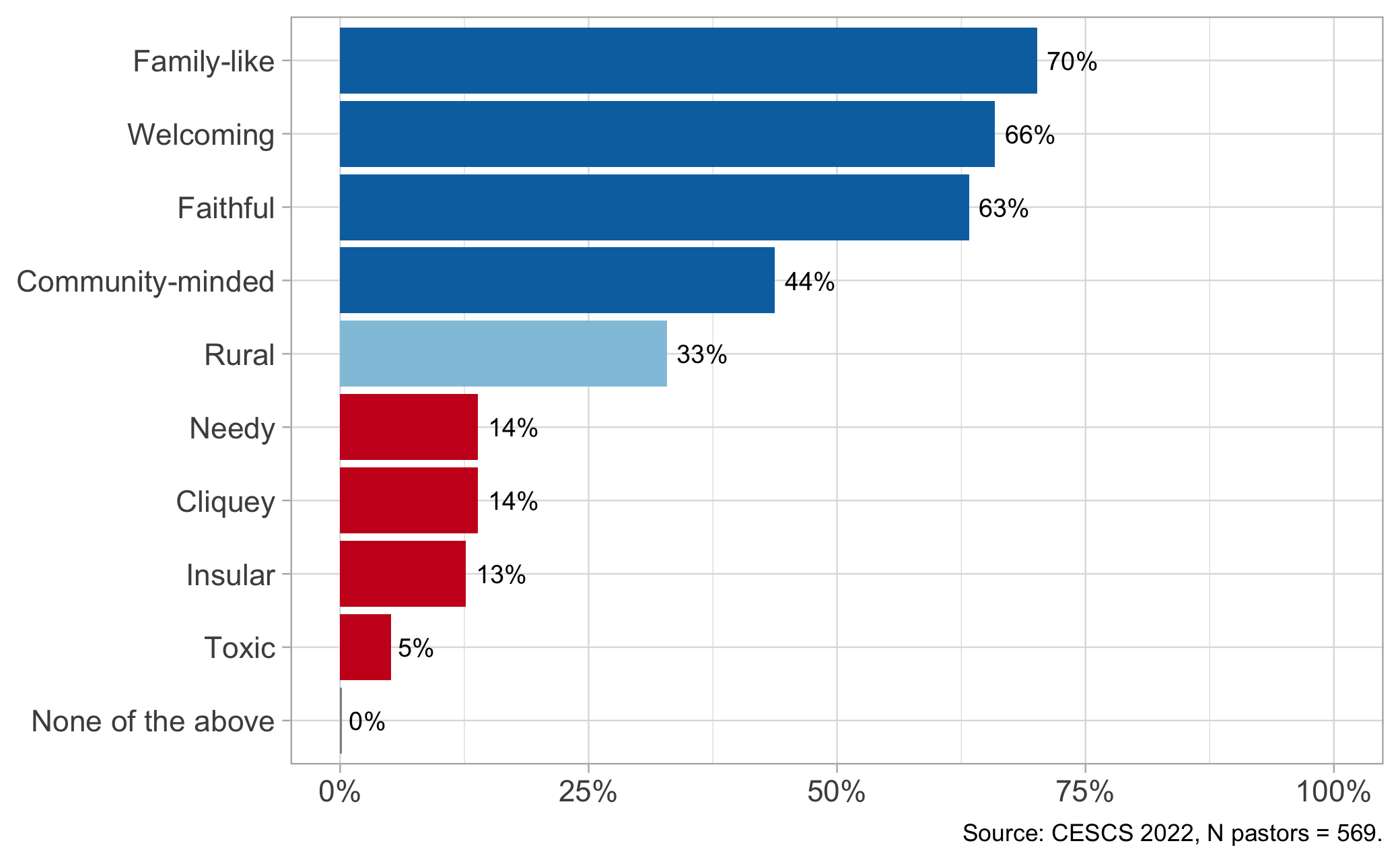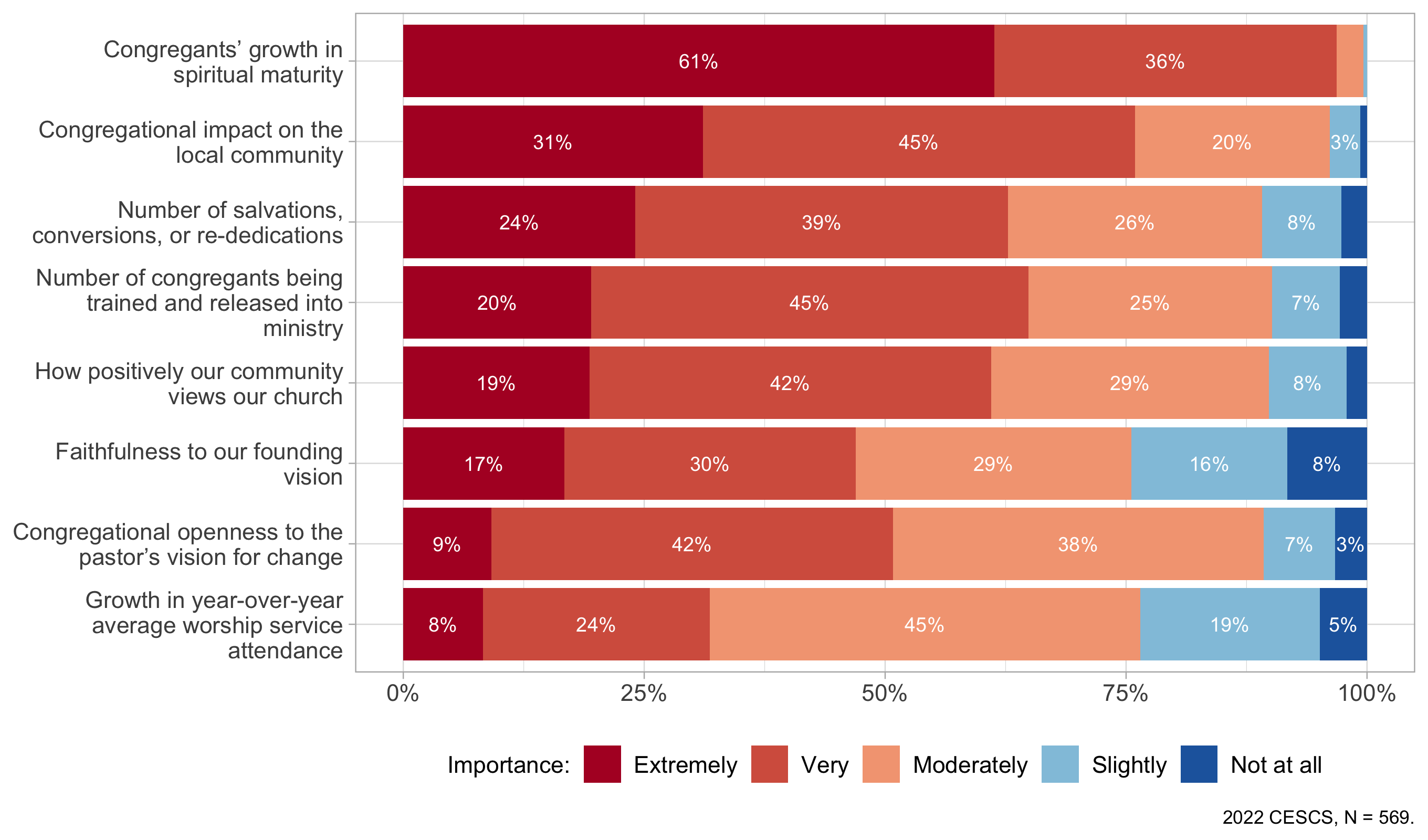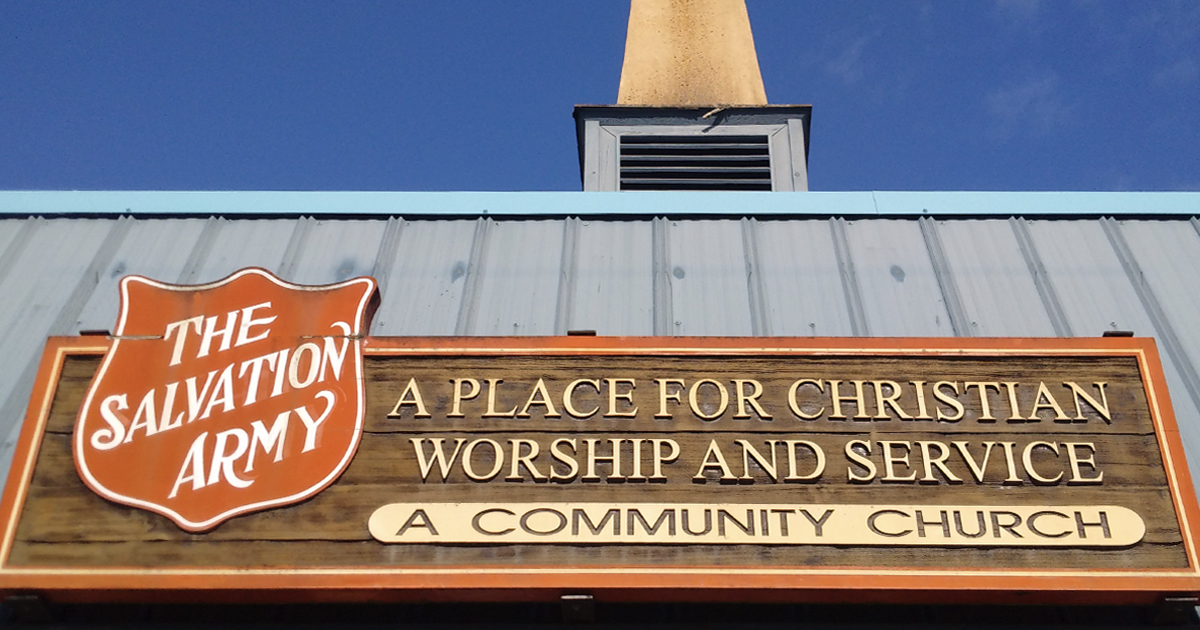As I walked through the front doors of a small church in Canada, greeters welcomed me. Over the next 10 minutes, several others noticed that I was a visitor and started friendly conversations. In the sanctuary, it took the worship leader several attempts to draw people’s attention away from talking and laughing so the service could begin. Not all small churches may offer so warm a welcome, but in a larger church, it would be difficult to immediately identify a visitor.
What can we learn from small churches? The Evangelical Fellowship of Canada (EFC) set out to examine the needs and strengths of small churches—defined as a congregation with an average Sunday attendance of 150 or less—through a collaborative research project with several other Canadian Christian organizations. As well as a national survey of pastors—including responses from Salvation Army officers—they conducted interviews with ministry experts from a variety of denominations and pastors of small churches. In 2023, they released a report called Significant Church: Understanding the Value of the Small Evangelical Church in Canada.
I wanted to hear from Salvation Army officers about this research, so I asked Major Sterling Snelgrove, corps officer at Hillcrest Community Church in London, Ont., and Captain Adriane Cartmell, corps officer at West End Community Church in Sandys, Bermuda, who both have experience leading small corps, for their thoughts. They have been valuable conversation partners in reflecting on the opportunities and challenges facing the small church in Canada.
Relationships
It will be no surprise that the study emphasizes the importance of relationships in small churches. Reflecting on this part of the study, Captain Cartmell notes, “Small churches have the capacity to be more relational because you don’t get lost in the mix.” Survey respondents were about five times more likely to use positive terms such as “family-like” and “welcoming,” rather than negative terms such as “insular,” “needy” or even “toxic,” to describe their congregations.
Small church characteristics

While the study recognizes that relationships can be unhealthy, it identifies the opportunities that small churches have for healthy relationships, which may be more difficult for large congregations:
• informal services that foster congregational participation
• the ease with which members can detect missing faces
• the ability to identify and welcome newcomers
Sam Reimer, a sociologist at Crandall University in Moncton, N.B., identified the importance of relationships in Western societies—specifically that trusted friends are needed in evangelism and discipleship—in his recent book, Caught in the Current: British and Canadian Evangelicals in an Age of Self-Spirituality. The relational capacity of small corps will serve an important role as we look to the future.
Congregational Covenant
Rick Hiemstra and Lindsay Callaway, authors of the study, use the term “covenant” to describe the (generally) unspoken purpose or reason for a congregation’s existence, which may have formed during the founding of the church or be wrapped up in the memory of golden years of ministry.
While large churches can also have a sense of purpose, Hiemstra and Callaway suggest that their informal covenant is between the congregants and the staff team, while in small churches, the highly relational environment means the covenant is between members of the congregation.
One of the challenges for all human organizations is how to adapt or change (as has been tested during the pandemic), so the idea of an internal, informal covenant is useful for considering what kinds of changes will be viewed as aligning or conflicting with a congregation’s identity. If leaders are not aware of the unspoken expectations of congregants, unintentional conflicts can erupt.
Captain Cartmell suggests that “waiting an appropriate amount of time to understand the unspoken covenants of the congregation is important. I don’t know if we often consider that congregations have them. We often speak of identifying sacred cows, but the study does suggest that waiting and having those longer tenures is more helpful in terms of church growth and health. I don’t think we disagree with that in the Army.”
If new leaders take enough time to understand what makes a particular corps hold together and earn the trust of the people, changes can be better explained and appreciated by the congregants.
Small Church Connections, one of the research partners for the Significant Church study, held a series of retreats where the preliminary findings were discussed. Rhonda Wassink, a deacon at a small church in Nova Scotia who attended, observed: “Small churches are family. People don’t come into your house where your family lives and just start changing the curtains.”
“[Rhonda’s] point was that the pastor who makes changes before becoming part of the church family behaves like a visitor in your home who tries to redecorate before they have become part of your family and earn that privilege,” notes the study.
Major Snelgrove recognizes that time invested with a small church does provide an advantage for the leader. “The minister most likely is able to make contact with everyone in the congregation and is able to explain a little bit about them,” he says. This familiarity with families and individuals can both build mutual trust and create a starting point for journeying together into the future. Being able to initiate constructive change will be essential for every congregation as communities around us change so rapidly.
Leadership
Captain Cartmell notes that the report affirms the small-church leader’s role as more of a ministry generalist than a specialist. Major Snelgrove describes this in terms of capacity: “When the body (of Christ) is proportionally small, however, specialization is not always possible.”
When a congregation has a limited number of staff (or volunteer leaders), the small-church pastor must fulfil several different roles. Major Snelgrove points out that as an officer with 35 years of experience, he does feel he has developed somewhat of a specialization in small congregations during that time. The skills required to negotiate relationships within the congregation and with the broader community can be developed.
Leadership plays a role in not just guiding people through their spiritual journeys and pastoral care but also in the small church’s overall direction. When reviewing the small-church leaders’ answers to the question of how they view “success,” the following measures were described and held different degrees of importance for different survey respondents.
Small-church pastors’ measures of success

We can see the value in each of these measures of success from a missional perspective, but some of the interviews prompted very pragmatic responses. One pastor of a small church said, “The fact that we’re still paying our bills is success.” Sustainability is obviously a greater concern when the congregation is small. While a Salvation Army corps can increase community ministry in ways most other churches can’t through the work of community and family services or thrift stores (with employees and community volunteers), there remains a need to sustain the spiritual ministry and leadership development provided by the discipling and worshipping group.
The researchers recognize that Salvation Army officers face greater complexity than most other small-church pastors: “Most administrative duties looked similar across denominations and theological traditions, but Salvation Army officers tended to do more administration work than typical pastors. The pastor we interviewed oversaw not only the church but the Salvation Army thrift store and other social services they provide. They also oversaw several employees.”
Obviously, these responsibilities vary from corps to corps in terms of combinations of responsibilities beyond pastoral duties, but it is important to note these differences from other leaders of small congregations interdenominationally. The balancing act of time and energy between different leadership responsibilities requires attention.

Mjr Sterling Snelgrove, Linda Lyons and Germey Wiseman at Acton Corps last June (Photo: Rob Lyons)
Looking Toward the Future
The title of the research report, Significant Church, recognizes the significant contributions that small churches are making across Canada. In Western societies, where we are beginning to relearn the value of in-person social connections, small churches offer an experience of Christian community. This opportunity to know others and to be known reflects the deeply personal love God has for each one of us. How shall those of us in small congregations demonstrate this love?
James Watson was a corps health and planting consultant in the corps mission resource department. He has since moved to a new role leading a research project on church planting for the Canadian Institute for Empirical Church Research at Wycliffe College, University of Toronto.
Related Resources
For more information about the Significant Church research, check out these podcasts and videos:
https://cscmc.ca/podcast/episode-52-rick-heimstra-and-lindsay-callaway-significant-churches/
https://www.flourishingcongregations.org/post/flourishing-update-may-3-2023
https://www.flourishingcongregations.org/post/flourishing-update-may-10-2023
Graphs: Courtesy of the Evangelical Fellowship of Canada










Leave a Comment